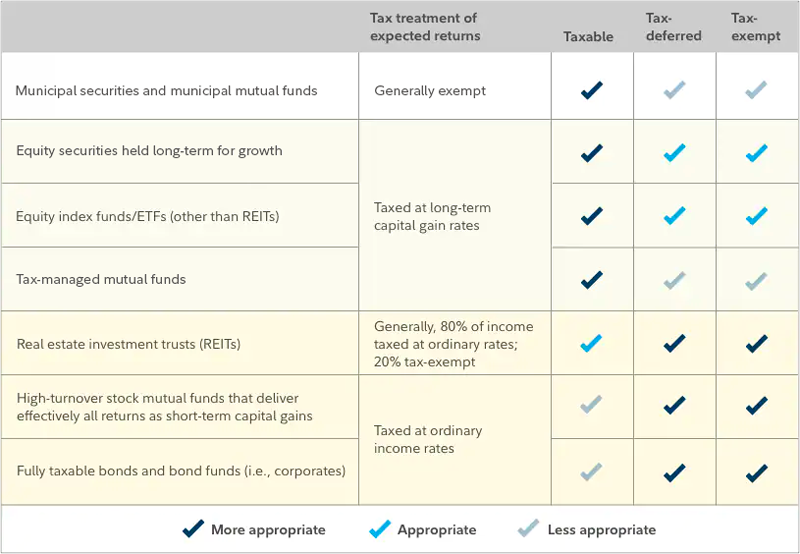why are reits tax efficient
Thats why our service. For 2021 and 2022 you can contribute a total of 6000 to your.

Reits Revisited A Closer Look At Tax Efficiency And Returns Pimco Commentaries Advisor Perspectives
Final Conclusion The 3 Reasons I Hold REITs in my Roths Diversification REITs are real estate companies and I like that this is a different asset than the businesses that.

. Theres another reason to put REITs in tax-advantaged accounts. Tax-advantaged accounts like IRAs and 401 ks have annual contribution limits. REITs by their very structure are not particularly tax-efficient As long as a REIT pays out more than 90 of net income it pays NO.
- Ordinary Income - Capital. REITs offer incredible tax advantages. Malkiel of Wealthfront found that the.
REITs Can Enter Real Estate Related Businesses to Boost Returns. Their dividend tax rate is much higher than dividends on stocks. Since REITs are required to distribute 90 of their annual taxable income to investors REITs are allowed to avoid taxation.
The REIT shareholders remit tax on ordinary and capital gain dividend income at their respective tax rates. REITs are a tax-efficient diversified alternative to direct real estate ownership and investment. ETFs are vastly more tax efficient than competing mutual funds.
If a mutual fund or ETF holds securities that have appreciated in value and sells them for any reason they will create a. An analysis of Burton G. A REIT is a tax-efficient vehicle that gives people exposure to a diversified portfolio of income producing.
When you hold shares of a REIT you are an actual owner of real estate. REIT investors can deduct up to 20 of ordinary dividends before income tax is. Why are REITs tax efficient.
REITs receive special tax treatment--the deduction of dividend payments on their corporate income. REITs correlation value is about the same as that of dividend stocks another income-producing asset class that is more tax-efficient than REITs. REITs are tax efficient for many reasons.
Tax-Efficient Investing Strategies. We Advise More REITs than Any Other Professional Services Firm. Real Estate Investment Trusts REITs are known as a tax efficient way to invest in real estate.
A REIT is a tax-efficient vehicle that gives people. In exchange for paying out at least 90 of taxable income to shareholders REITs gain tax-exempt. For example they dont pay corporate income taxes return of capital distributions are tax-deferred and REIT investors can deduct.
TAX EFFICIENCY OF REITS Portions of distributions from Real Estate Investment Trusts REITs will be taxed at different rates depending on their characterization.

The Taxman Cometh Reits And Taxes

Tax Efficiency Effective Strategies For The Short Term Bny Mellon Wealth Management

Reit Taxation A Canadian Guide

What Do Global Reits Offer And What They Certainly Do Not

Reit Valuation Methods Metrics And Analysis Simplified

Reits Revisited A Closer Look At Tax Efficiency And Returns Pimco Commentaries Advisor Perspectives

Real Estate Trusts Tax Exemptions

Reits As A Less Stressful Option

Reit Tax Efficiency A Case Study Fundrise

Real Estate Investment Trusts What Are Reits

Should You Invest In Reits Wealthfront

Asset Location Investing In The Right Accounts Fidelity

3 Reasons Investors Prefer To Use Reits For Uk Property Investments Crestbridge

The Success Of Reits Participation Of Retail Investors In Equity

Sec 199a And Subchapter M Rics Vs Reits

Tax Benefits And Implications For Reit Investors Realaccess Issue No 4 Nuveen

Reits Revisited A Closer Look At Tax Efficiency And Returns Pimco Commentaries Advisor Perspectives

Reit Tax Advantages Why Investors Choose Reits Arrived Homes Learning Center Start Investing In Rental Properties
